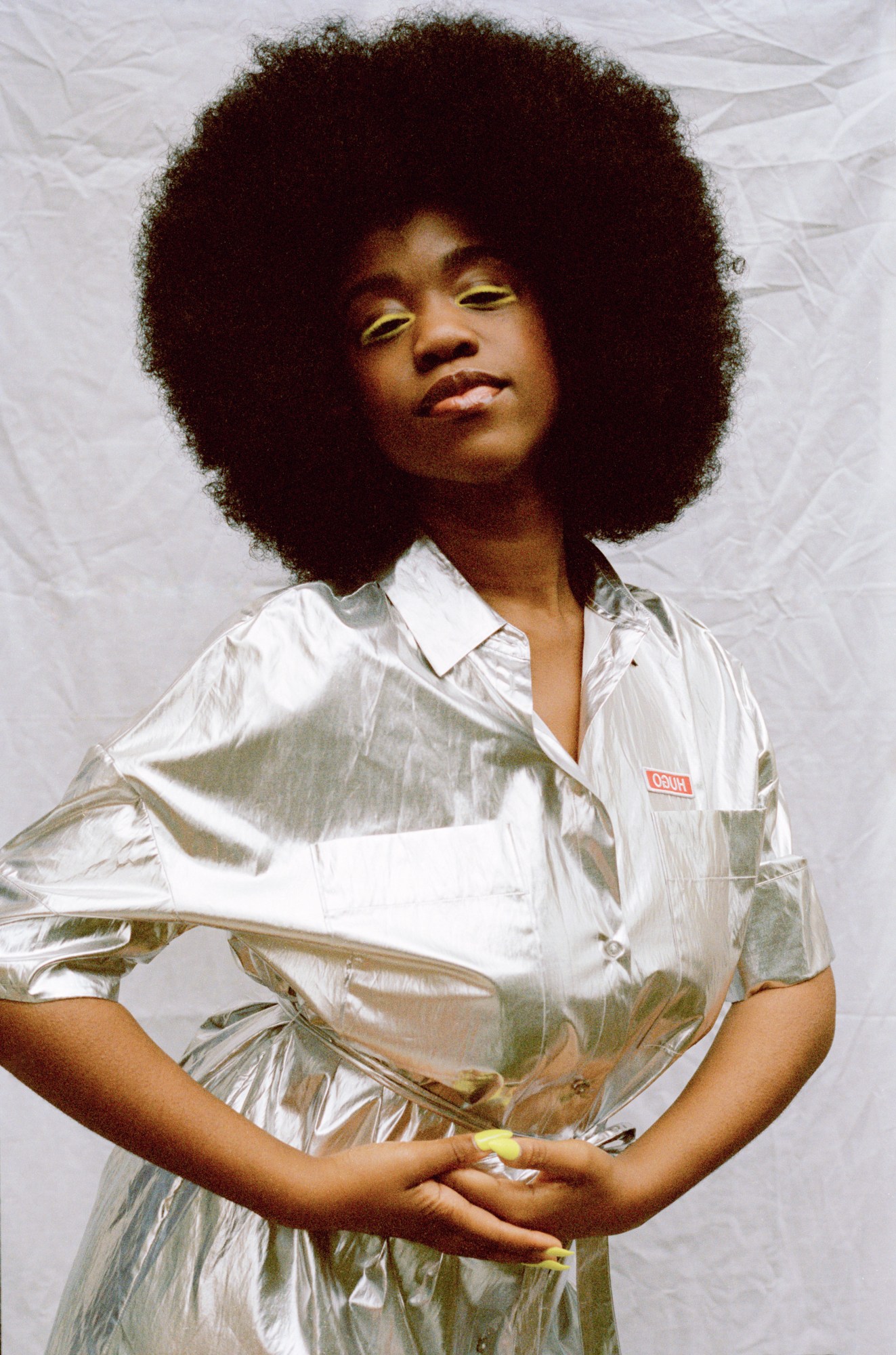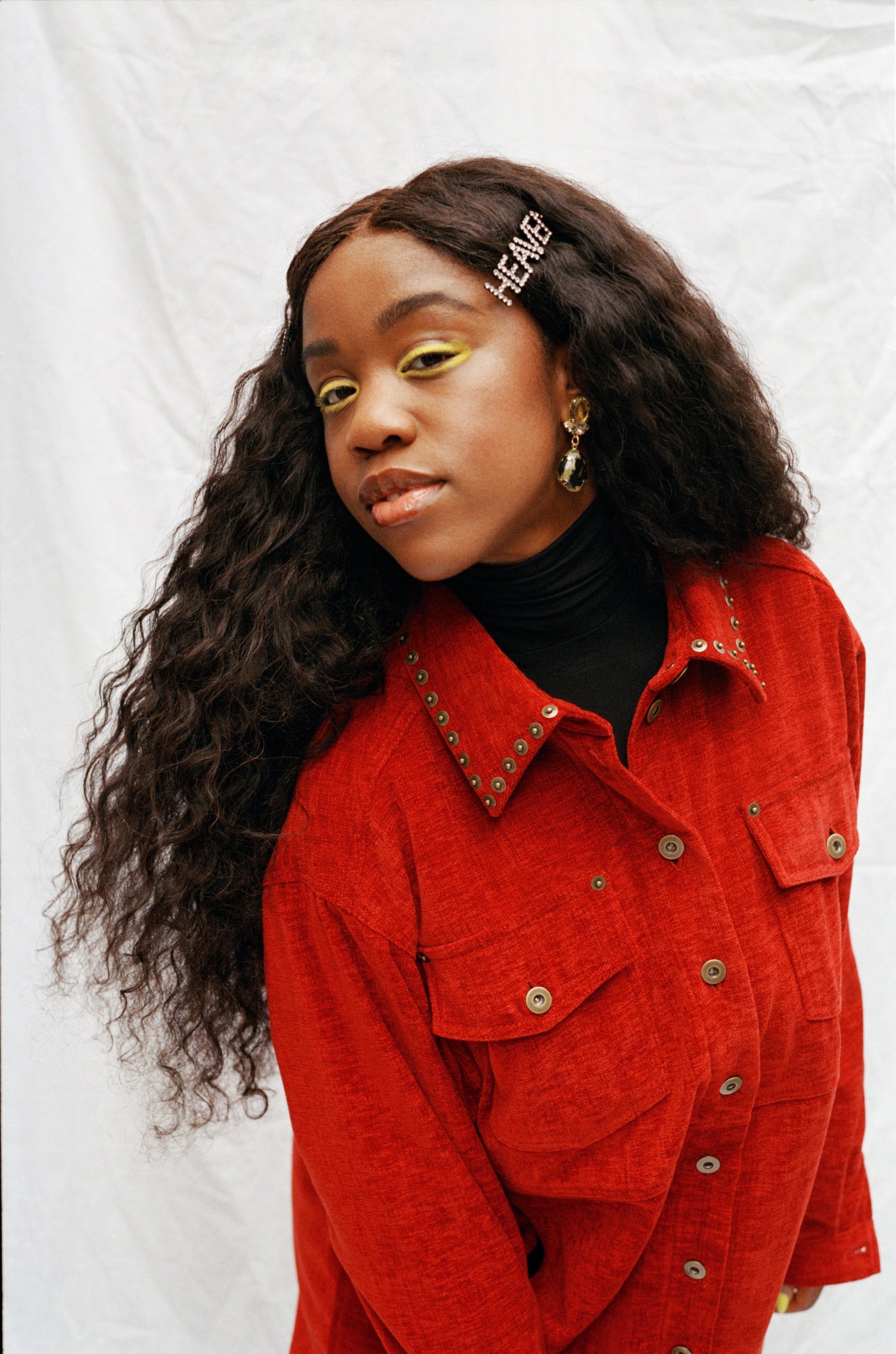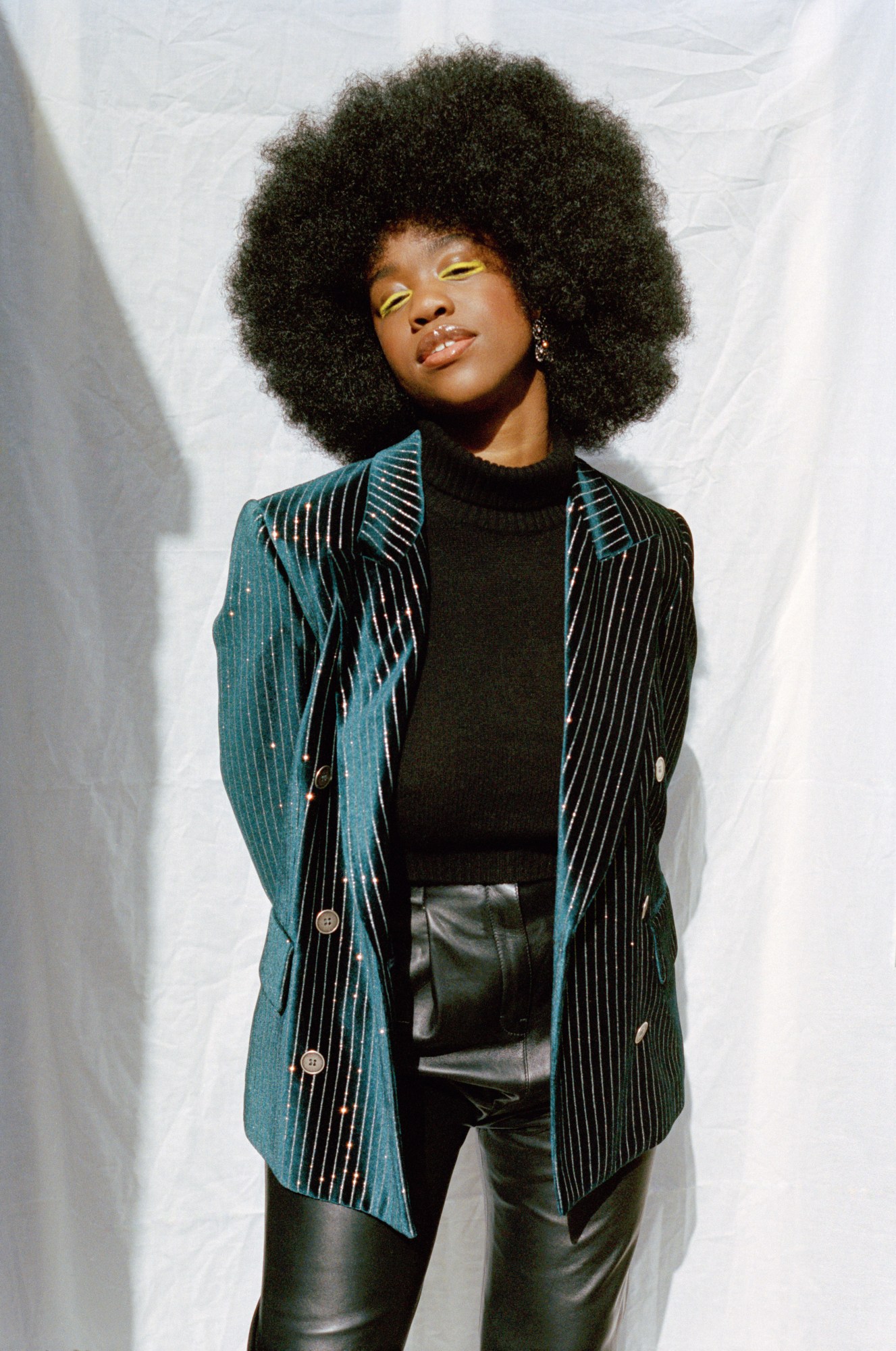This article originally appeared in i-D’s The Superstar Issue, no. 354, Winter 2018
“This is a book by a recovering hypocrite,” writes Chidera Eggerue, opening her book, What A Time To Be Alone by fully disclosing that she’s still figuring things out herself. “I’m here to remind you that no matter where you find yourself in life, you will always have to face your truth. All of it. You’re not alone, you’re not crazy. Your feelings are valid and it’s time to make peace with them.”
Full of Igbo proverbs instilled in her since childhood by her Nigerian mother, What A Time To Be Alone is not your average self-help book. Written by the 23-year-old award-winning blogger turned author, public speaker and presenter known to her plethora of followers as The Slumflower. Reinvigorating tried and tested subjects like dating, toxic friendships and body positivity for a new generation, the underlying message is one of self-love. Like a much-needed 2018 preacher who knows exactly what we all need to hear, Chidera is your best friend, your therapist and your spirit guide all at once.
In What A Time To Be Alone she reflects on existing as a black woman and teaches that we can each decide our own fate. “Learn how to celebrate you. Don’t worry about them. Feel the togetherness in us.” Simple enough, right? Flick through the book and you’ll discover her mother’s reminder that “silence can never be misquoted” alongside a short essay on recognising your privilege, an agony aunt-style letter on why it’s not your responsibility to fix other people, and pages of positive affirmations. On Instagram, Chidera shares a showreel of day-altering inspirational quotes, and it’s not in the least bit annoying. “I’m learning to stop letting being liked define my greatness and instead, welcome the parts of me that make me different to everyone else,” she casually dropped into an image caption recently. “Omg imagine how differently you would manoeuvre the world if you knew that you’re under no obligation to be ‘desirable’ but also, that wanting to be desired doesn’t mean you have ‘failed feminism’,” she said in another, leaving us questioning everything.
You were most likely introduced to Chidera via the accidentally-viral #SAGGYBOOBSMATTER campaign she started after learning to love her own and beginning to go braless a couple of years ago. Since then, her ever-growing popularity has led to not just the aforementioned guide to self-love, but also a children’s book called Scribble Yourself Feminist; a TED talk; a presenting job on a BBC3 documentary about hair loss (Chidera has traction alopecia); regular guest appearances on Woman’s Hour; a meeting with Oprah (casual); and a ‘by Gen Z, for Gen Z’ non-gendered, animal-free and sustainable fashion line called Collusion, created with a collective of young designers, models and artists. She’s on a roll, basically.

What’s the big idea, Chidera? I’m essentially using dialogue to create shifts in the way that people approach how they move through the world. With the way the world looks now, we’re not gonna get the change we deserve without actually creating friction. Most people see me as a troublemaker. That’s something I used to view as negative but now I’m reclaiming it and embracing the fact that I am trouble. Trouble brings about necessary change whether people like it or not.
You were born and raised in Peckham. How do you reckon that has shaped you? It gave me a sense of who I am. Growing up seeing black people being black in their entirety has been very important, especially having to deal with the confusion of not really feeling at home anywhere – when I’m in the UK, I’m Nigerian. In Nigeria, I’m British. Being in Peckham allows me to feel that it’s okay to be something in between.
Would you say that you were brought up with traditional Nigerian values? I was raised by a very strict Nigerian mother and I often felt restricted, which made me rebel. It meant that I always had an ambition to create my own freedom. My escape was using social media to relate to people that I wasn’t allowed to reach offline. It gave me a space to develop my own voice.
You dedicate What A Time To Be Alone to your mother, “who effortlessly yet intentionally led me to myself”. What do you most admire about her? Her tenacity. She always makes sure that she speaks up for herself, whether it’s convenient or not. That’s something that’s really, really important as black women. We’re taught that we have to settle for what we’ve been given, that we should be grateful, so it’s so powerful to see my mother question the world and demand what she deserves.
For sure. Your book taught us a lot — what have you learned in the past year? I used to think I didn’t need therapy. I thought that I could just think my way out of things, but that was actually a form of self-harm, believing that I wasn’t deserving of help. So I had to give myself that love by going out of my way to get therapy and challenging every single one of my beliefs, which is really hard to do because it makes you feel fragile.

Do you follow your own advice? I’d say half the time I follow my own advice, and the other half I don’t. When I don’t follow it, it’s because I’m too busy wasting time trying to figure out whether something is intuition or if it’s an insecurity of mine. It’s a really hard one!
Too right. What misconceptions do you reckon people have about you? I think people think that I’m hateful towards men. It’s a binary way of thinking. You can love someone and still call out their oppressive behaviour! A reason I really hate the ‘Not All Men’ narrative is because if you focus on the nice ones, then you’re not addressing the larger situation.
It must be exhausting having people assume you have all the answers, all the time? I’m really careful and intentional about where I choose to apply my energy, because I can’t be everything for everyone, and that’s okay. I can’t save the world, and that’s okay. It’s not my responsibility to save a world that is already operating on systems that make it hard for me to maneuver within it. All I can do is try my best, where physically possible, to create the least amount of damage possible. I think that’s a mindset that everybody who participates in capitalism – which is all of us – should have. Nobody is perfect, but we’re accountable.
Talking of accountability. You’ve just launched a brand, Collusion. Why did you want to be a part of the fashion industry? The aim of Collusion is to shift the conversation. I was being placed in a position that allowed me to be able to contribute the change that I wanted to see in the fashion world. No industry can ever be perfect, but everybody can try a little harder.
What kinds of changes are you hoping to make with it? How gendered clothes are. People don’t really understand that the more we reinforce the binary, the more violent we’re being towards non-binary and trans people by not providing them with access to safe forms of expression. I really hope that eventually the fashion world will be less obsessed with menswear vs. womenswear and more obsessed with all the marvellous ways in which we can adorn our bodies.
Absolutely. And when it all gets too much, what makes you feel hopeful for the future? I believe that we’re the generation that are going to access a level of consciousness that generations before us weren’t able to because there were too many painful distractions. It still hurts to exist, but now we have access to resources which allow us to have a lot more conversations. The more we use things like social media to have these conversations, the more we’re able to normalise having them in real life. We’re shifting the way that the world is spinning because we’re challenging our parents and existing on our own terms.
Credits
Photography Clare Shilland
Styling Jeanie Annan Lewin
Hair Hiroshi Matushita using Oribe. Make-up Michelle Boggs using M.A.C and Dermalogica Skincare. Photography assistance Charlotte Hartley. Styling assistance Sophy Wallace
